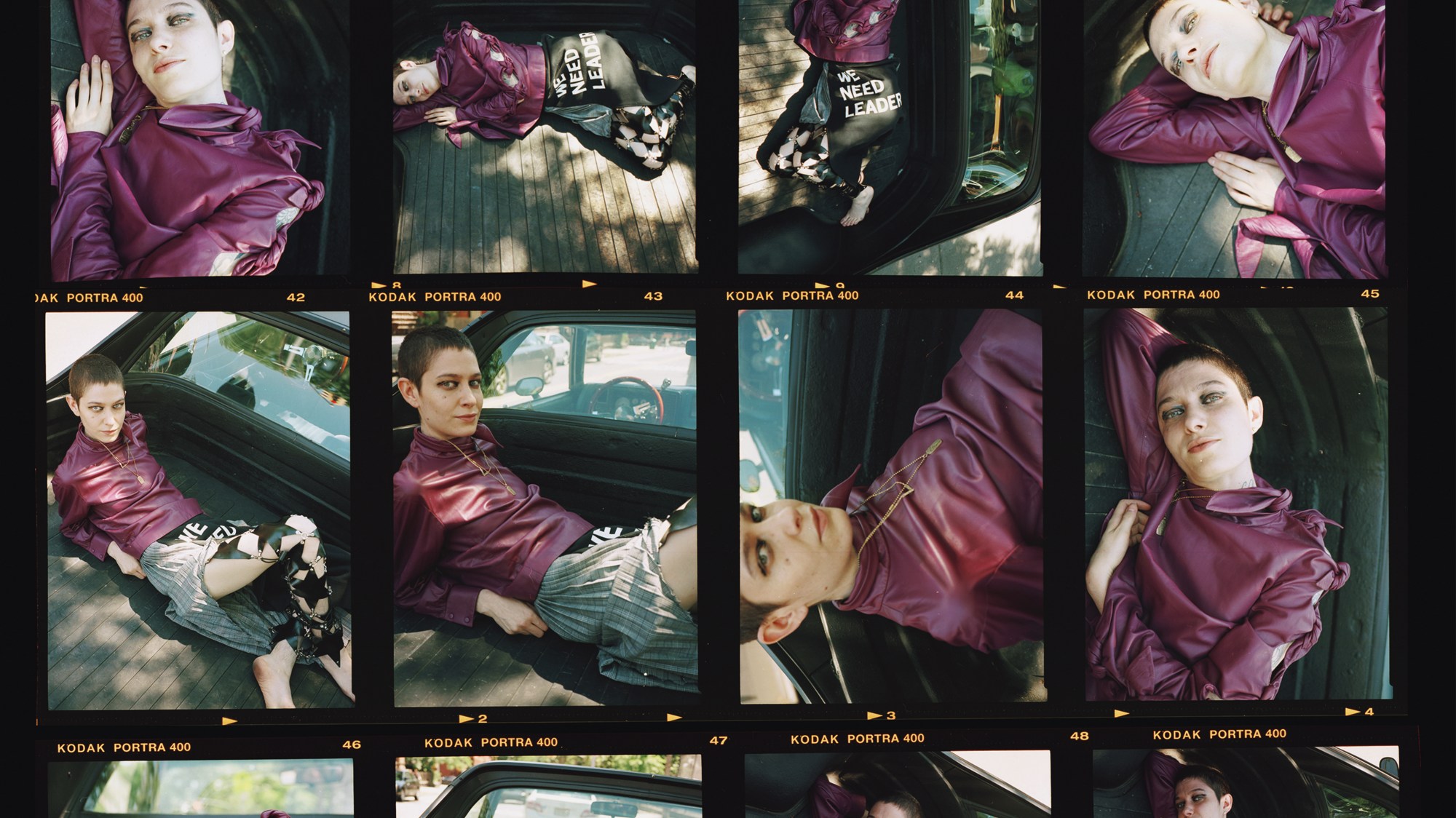This article originally appeared in i-D’s The Acting Up Issue, no. 349, Fall 2017.
Ask American actor Asia Kate Dillon to conjure up a character who is their polar opposite, and they’ll tell you Brandy Epps, the role they play in the last two seasons of Netflix’s prison opus Orange Is the New Black. “When I auditioned for that part I knew I had something unique to offer,” Asia laughs down the phone from New York. “I could empathise with the situation because I was coming at it from the totally opposite perspective.” In real life Asia is a devoted activist who campaigns for Black Lives Matter and works tirelessly to transform social understandings of gender. Brandy, meanwhile, is a neo-Nazi white supremacist who was locked up in Litchfield Penitentiary for secretly poisoning people of colour. While Asia has a tattoo of the word “empathy” printed across their neck, the members of Brandy’s prison gang are covered in Nazi insignia. The only thing Asia and Brandy perhaps have in common is the actor’s trademark shaved head.
If you don’t recognise Asia (pronouns “them” and “they”) from Litchfield Penitentiary, you might know them better as the non-binary gendered actor who started a vital conversation around “male” and “female” awards categories earlier this year. Asia penned a letter to the Emmys, asking why their Best Actor and Best Actress categories were still gendered, promptly landing themselves a nomination for Best Actor. “It was never about the winning, or even getting the nomination; it was more about starting a conversation.” Shortly after, the MTV Movie & TV Awards scrapped “actor” and “actress” and went for gender-neutral categories too. Asia was chosen as the one to present the award that evening to Emma Watson. In their moving opening speech, Asia said: “Tonight we celebrate portrayals of the human existence, because the only distinction we should be making when it comes to awards should be between each outstanding performance.”
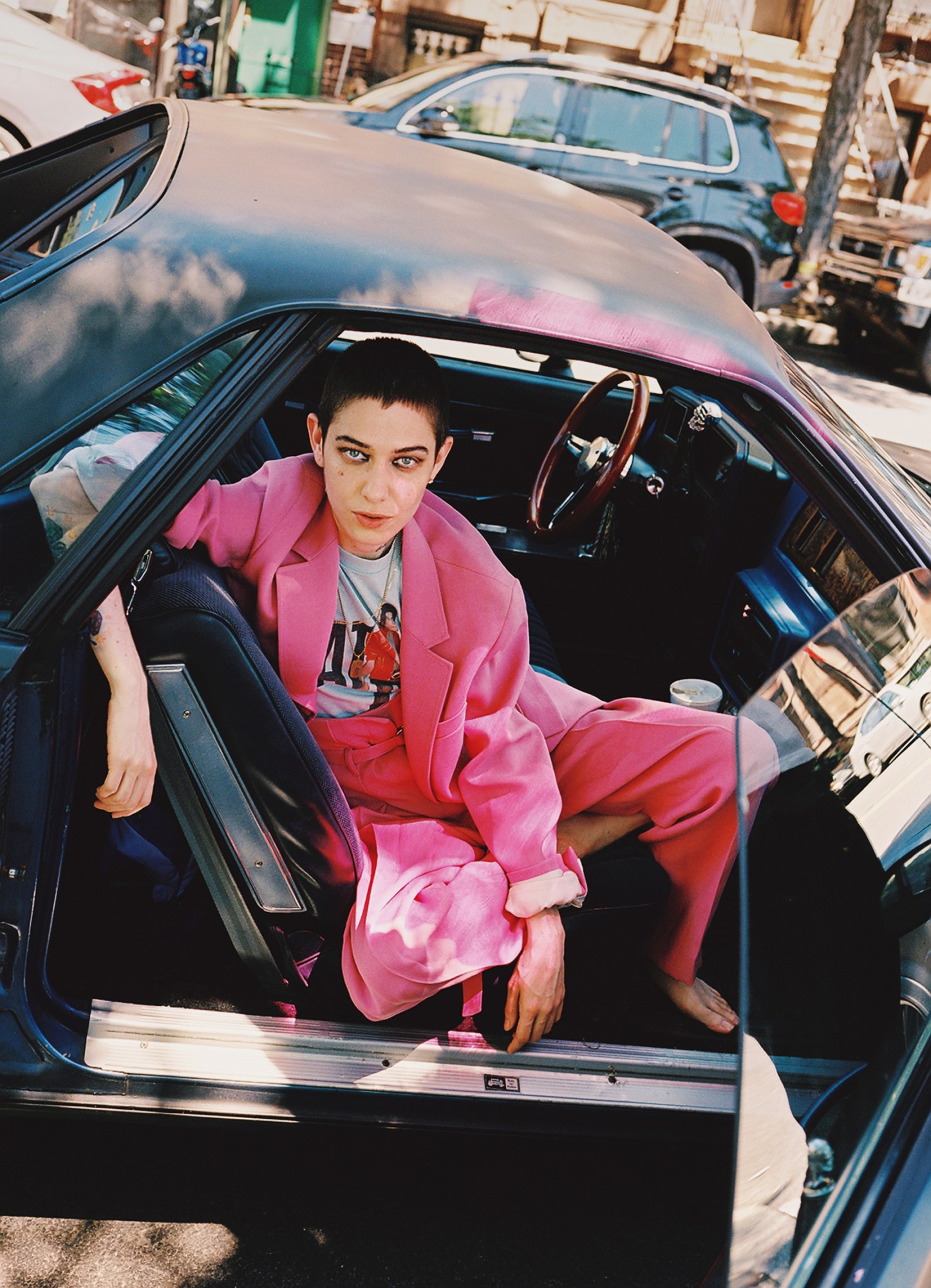
Suit 3.1 Phillip Lim. T-shirt, earring and necklaces model’s own.
The day i-D meets Asia, they’re recovering from a weekend at New York Pride, where they got to see one of their favourite bands, Tegan and Sara, perform. “I’m getting emotional just thinking about it,” Asia gushes of seeing the twins live. “I was surrounded by community, family, friends, love. I felt safety in numbers and saw a rainbow of diversity. What an incredibly powerful statement, to say ‘Here we are, we’re visible.'” Asia has felt genderqueer since growing up in Ithaca, New York as a kid – even if they didn’t yet have the language or “framework” for what they were experiencing. Raised by a liberal and supportive single mother who Asia lovingly describes as their “Northern Star”, they were lucky to be able to talk about these confusions at home about “what the social standard was, and the way I was living up to it – or not.” However, there were still difficult conversations. “A lot of parents of LGBTQIA children don’t want their child’s life to be any harder than life is already. I think that’s a perfectly natural reaction, it comes from a place of deep love.”
Now 32 years old, Asia started identifying as non-binary midway through last year, when they read the script for a part they went on to play on Showtime’s Damian Lewis starring series Billions. The part was for a character called Taylor, a mathematical genius and the first non-binary gender character on a major television network. Unsurprisingly this honour fell to the progressive Showtime, famous for shows such as Queer As Folk and The L Word. “Until I read that script, I’d been using the term ‘gender fluid’,” explains Asia. “I didn’t know that as a society we use the terms “male” and “female” with “man” and “woman” synonymously, when they’re not, in fact, synonymous terms.” Finding the term non-binary was a huge relief for Asia. “There are not just two identities – man, woman, boy, girl – we know this. And so, for me, the language of non-binary is not just an expression of how I experience my gender identity, but also a comment on the social construct that is gender, and the fact that the binary we’ve been taught exists, doesn’t.”
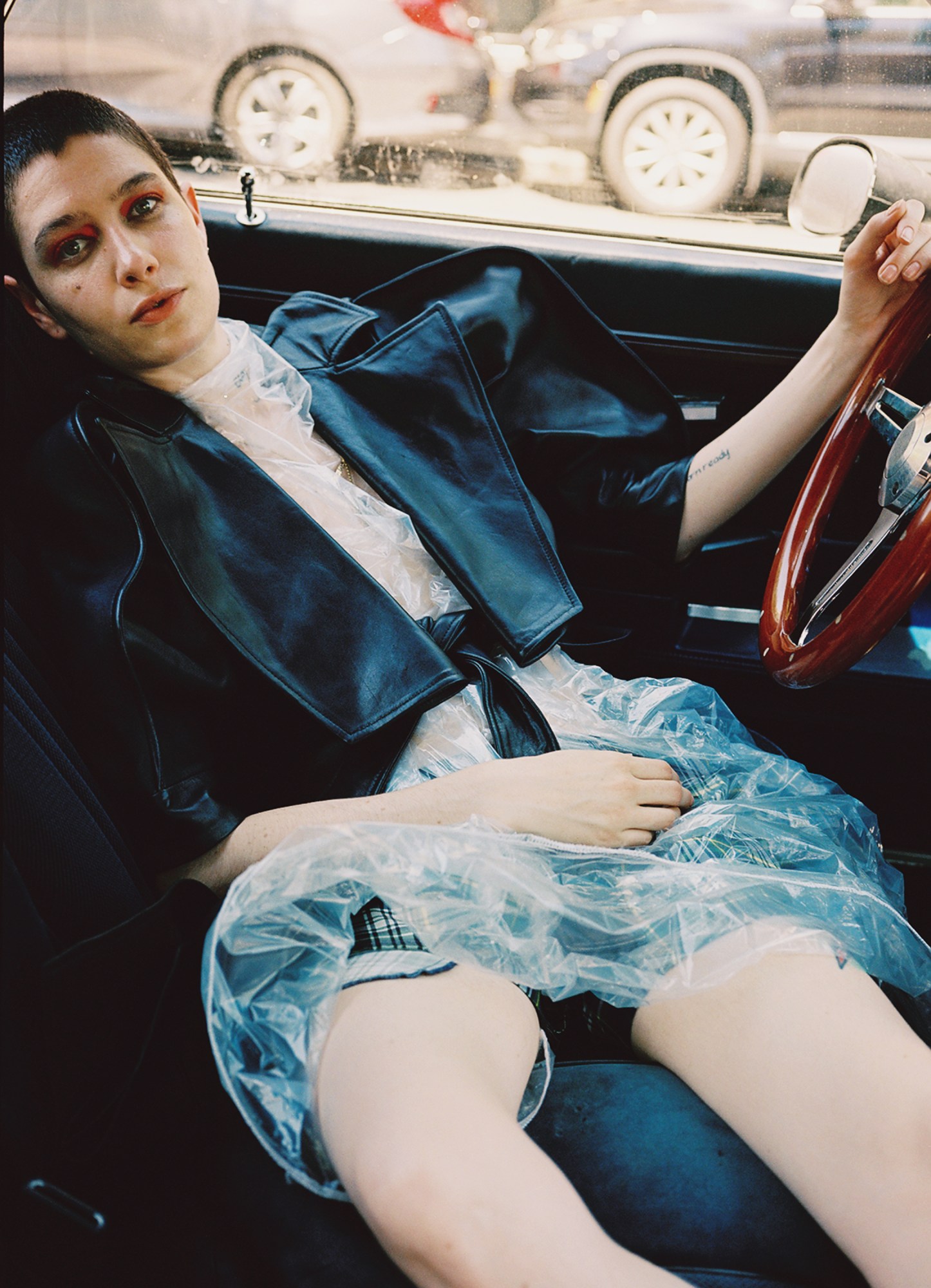
Asia is one of relatively few openly non-binary celebrities, including Transparent creator Jill Soloway, Hunger Games actor Amandla Sternberg and rapper Angel Haze, all of whom also use the pronouns “they” and “them”. Because the term non-binary has only come into wider use over the last couple of years, it’s lesser known than other terms for gender-nonconformity, something Asia hopes to correct through both activism and the roles they fill on TV. “Building a platform has always been important to me, even if one person was in my audience, because that one person is going to then go and speak to someone else.” If someone misgenders Asia or slips up on their pronouns – which has happened, they admit, albeit by accident, with co-stars on the OITNB set – it’s a good opportunity to try to change someone’s thinking. “It really says something about how much we assume to know about other people that we immediately gender them,” the actor explains. “I’m interested in having that conversation with people – especially people who are in positions to move the cultural wheel forward.”
It’s hard to imagine a show that could be a better fit for Asia other than OINTB. It has, over the course of six seasons, shown an unerring dedication to representing characters of all races, ages, backgrounds and religions. “It is certainly the first of its kind in that way,” Asia agrees. “The population of the most recent US census just came out at almost a quarter non-white. So if you’re making socially reflective art right now, it should be representative of that, and it should create conversations about what divides us as people, whether that’s the gender binary, or ideologies of racism, transphobia, sexism, homophobia or the patriarchy. I’m grateful to be part of not one, but two shows that are doing that.” In season five of OINTB, the plot focused on a Black Lives Matter storyline, in which a black inmate was “accidentally” killed by a white guard during a riot. For Asia, that storyline gave audiences a way of loving and losing a black person they knew, even if they didn’t know a black person in real life. “Next time they hear the name Eric Garner or Sandra Bland or Philando Castile or Trayvon Martin, they might think, ‘Oh, I actually know how it feels to love someone of colour and then lose them.'”
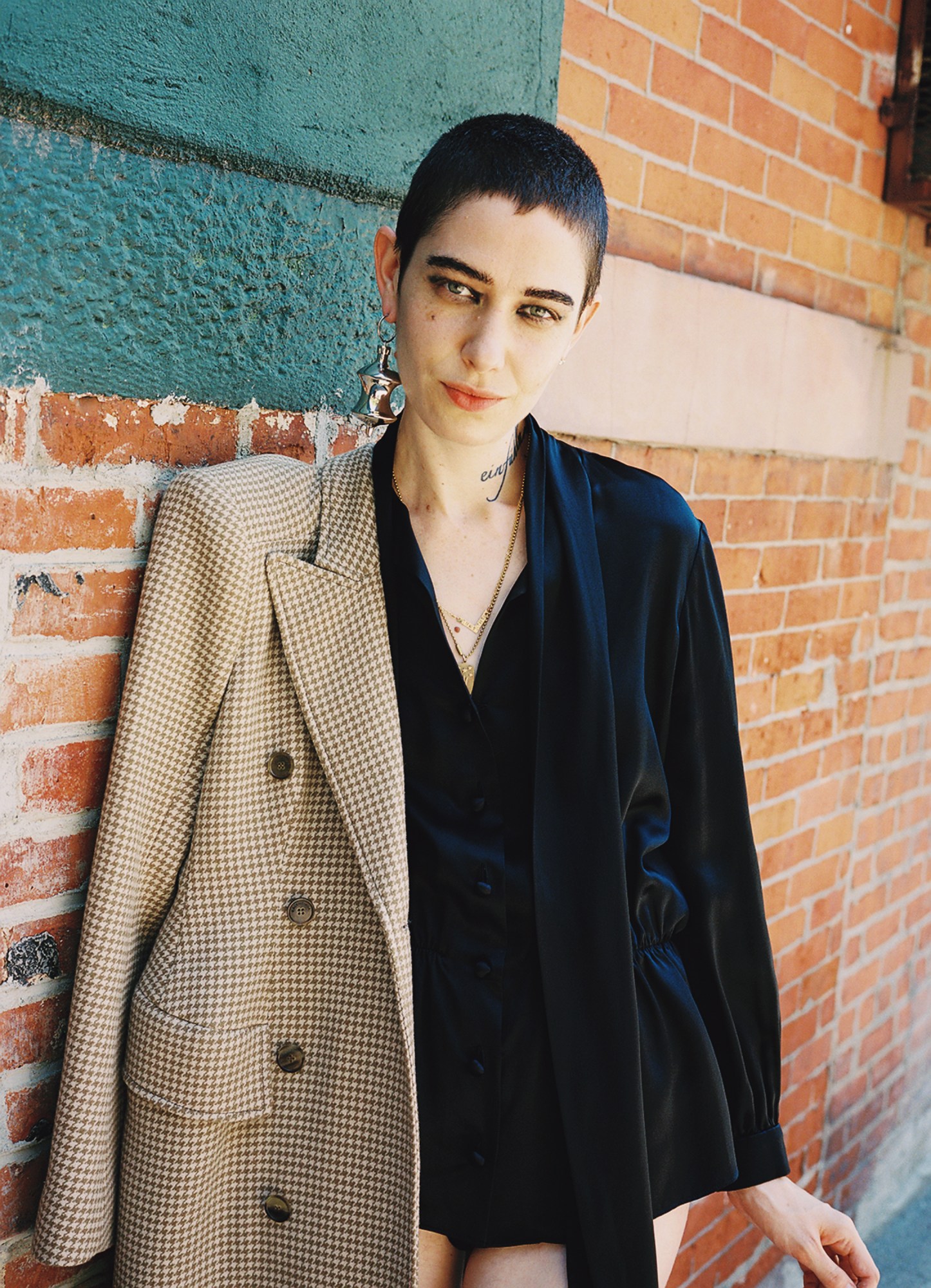
Whether we get a flashback scene for Brandy, we’ll apparently have to ask the OITNB writers; Asia’s giving nothing away. But they will be continuing with the role, as well as Taylor on Billions. Asia’s spare time in the coming months will be dedicated to the theatre production company they set up last year, MIRROR/FIRE Productions, which allows them to go back to their roots while making work that speaks to urgent inequalities. “I founded it because I was sick of seeing work that said ‘Come and see this as a salve for everything that’s happening right now’, rather than art that forces me to engage in conversations that make me uncomfortable,” Asia explains.
Just as they had no reservations about taking up the role of Brandy because, “You need an antagonist, and it’s important to show antagonists are also human,” they also have no reservations about discussing race as a white ally to the Black Lives Matter movement. “The burden of talking about oppression shouldn’t always be on the oppressed,” Asia says, towards the end of our call. “Just as we are assigned a sex at birth, and gender roles based on that sex, white and black are also labels that we are given based on the colour of our skin. The way those labels play out in society have life and death consequences, and I believe that the more people who are awakened to that knowledge, the more change is possible.”
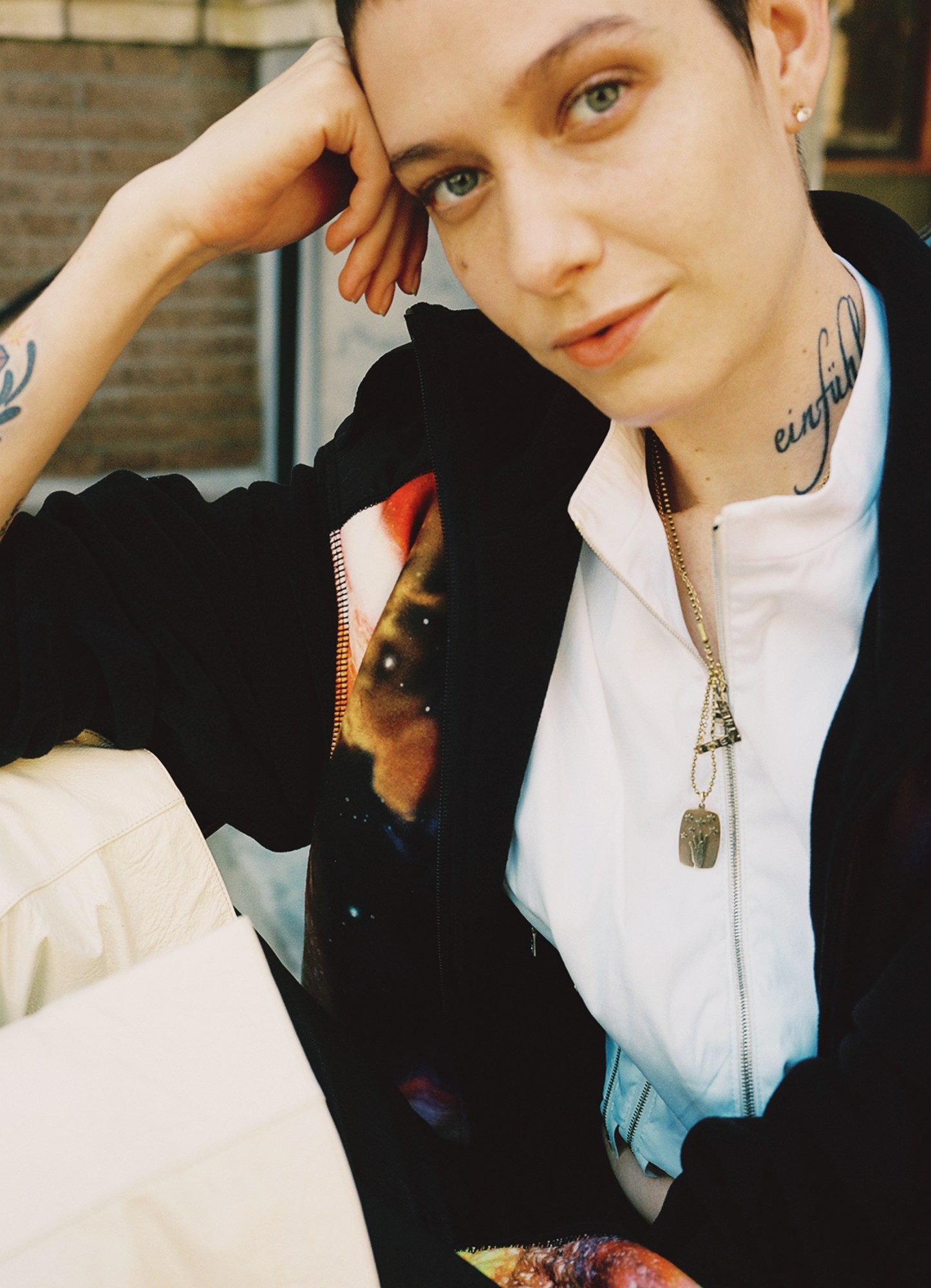
Credits
Photography Rebekah Campbell
Styling Amy Mach
Hair Blake Erik at Statement Artists using Bumble and Bumble. Make-up Cedric Jolivet using M.A.C Cosmetics. Photography assistance Marcel Castenmiller. Styling assistance Lauren Jenkins.
